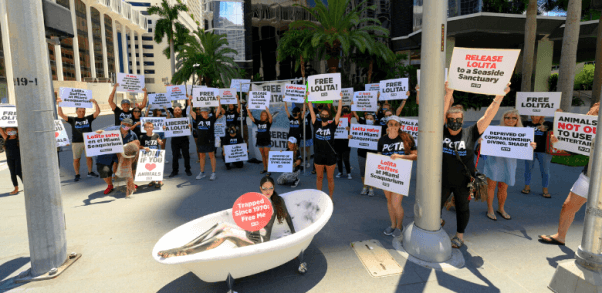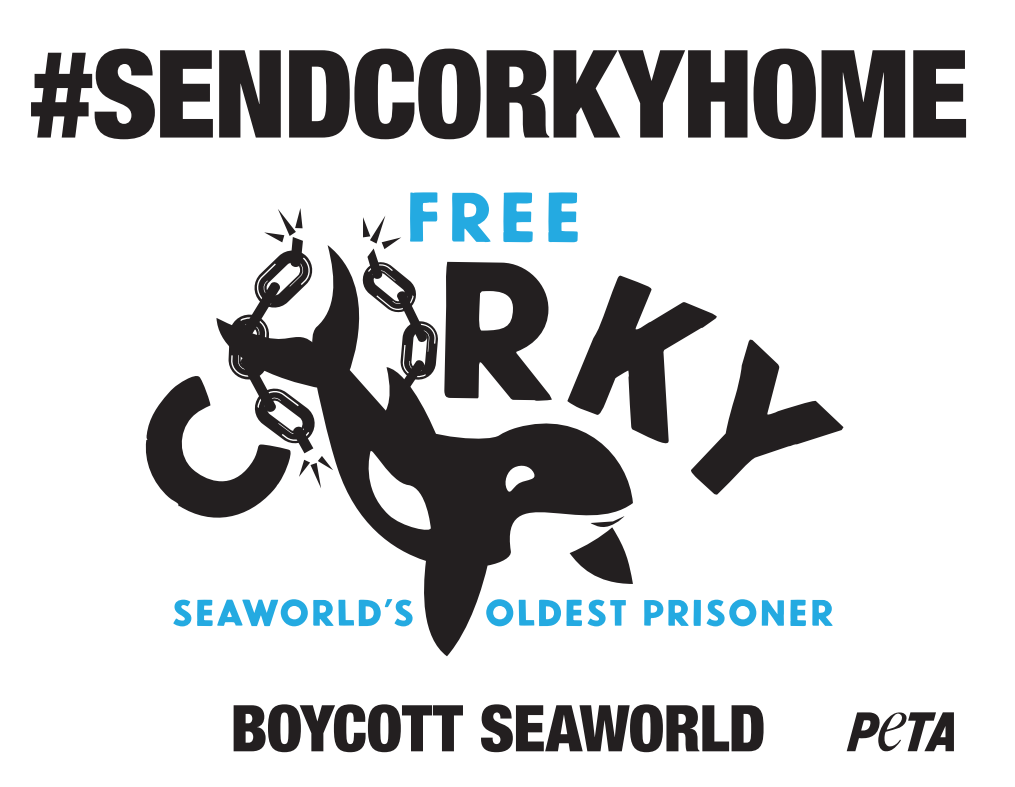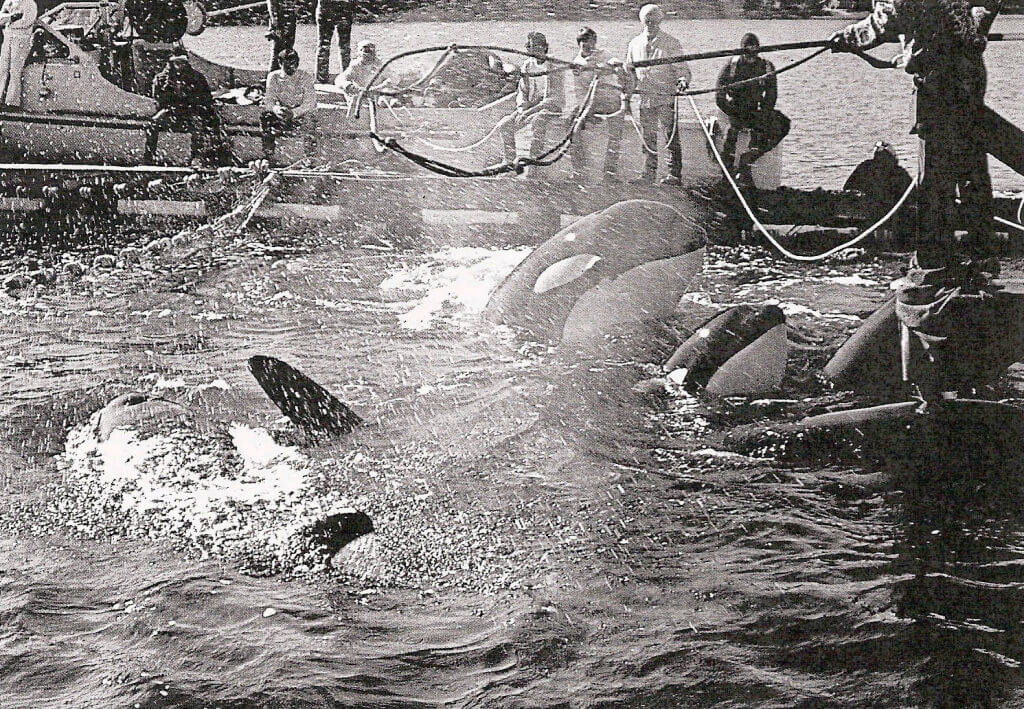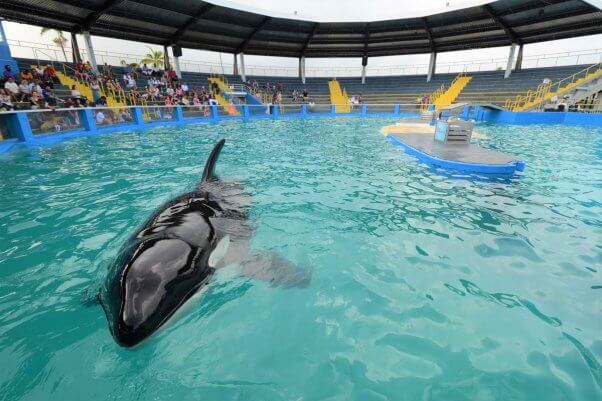The post Dev GFAD 2023 Image Only HOME appeared first on PETA.
Urgent From PETA: Cruel—and Criminal—to Abandon Animals During Tropical Storm Hilary
As Tropical Storm Hilary approaches Southern California—and because a tropical storm warning is now in effect for Orange County—PETA reminds that people should never leave dogs tethered or penned outside and to always take their animal companions with them if they have to evacuate their homes.
Believe it or not, every time there’s a natural disaster, many dogs and other companion animals are left outside to fend for themselves and even left behind when humans evacuate. Dogs kept tethered will swim to exhaustion and drown—and there are tethered dogs everywhere. PETA’s Animal Rescue Team has witnessed firsthand the trauma that animals endure when left behind to face floodwaters and flying debris. During previous storms, we have found dogs dead. We have also found them up to their necks in water, unable to sit or lie down, and in almost-submerged crates inside houses and seen animals who have been flung around by high winds. And of course, animals are petrified in these kinds of weather conditions.
Please see PETA’s natural disaster–preparedness PSA featuring Dean Winters. It reminds people to make plans to ensure the safety of their animal companions long before evacuating. For more information, please visit PETA.org.
The post Urgent From PETA: Cruel—and Criminal—to Abandon Animals During Tropical Storm Hilary appeared first on PETA.
In Wake of Lolita’s Death, Dolphin Defenders Descend on SeaWorld to Demand Corky’s Freedom
Following the death of the orca Lolita, who spent more than five decades imprisoned in a tiny tank at the Miami Seaquarium, PETA supporters will descend on SeaWorld on Saturday to call for the release of Corky, the longest-held captive orca in the world. Like Lolita, Corky was sold into the entertainment industry after being torn away from her family and ocean home, in this case off the coast of British Columbia in 1969, and she was used for years as a breeding machine—but not one of her babies survived past 47 days. Her last pregnancy ended in a miscarriage when her dead baby was found at the bottom of a concrete tank at SeaWorld. She has been kept captive for 53 years.
“Like Lolita, Corky has known only misery for more than 50 years, with no life other than to swim in endless circles in a tiny, barren tank, and she must be released,” says PETA Executive Vice President Tracy Reiman. “PETA is shaming SeaWorld, which must listen to public opinion and release Corky into a seaside sanctuary, where she could dive deep, swim fast, and even possibly reunite with her family before she dies in captivity as Lolita did.”
Corky is the only surviving orca who was captured before Lolita, whose death follows years of PETA protests, lawsuits, an endangered species designation, and the recent announcement that, thanks to philanthropist and Indianapolis Colts owner Jim Irsay, plans were finally being made to move her to a seaside sanctuary.
Where: At the intersection of Sea World Drive and Sea World Way, San Diego
When: Saturday, August 19, 4 p.m.
PETA—whose motto reads, in part, that “animals are not ours to use for entertainment”—opposes speciesism, a human-supremacist worldview.
For more information, please visit PETA.org, listen to The PETA Podcast, or follow the group on Twitter, Facebook, or Instagram.
#
The post In Wake of Lolita’s Death, Dolphin Defenders Descend on SeaWorld to Demand Corky’s Freedom appeared first on PETA.
PETA Statement re Death of the Orca Lolita
She died as she had lived: After spending more than five decades imprisoned by the Miami Seaquarium in the smallest, bleakest orca tank in the world, deprived of any semblance of a natural life, the long-suffering orca Lolita has passed away. Her death follows years of PETA protests, lawsuits, an endangered species designation, and the recent announcement that, thanks to philanthropist and Indianapolis Colts owner Jim Irsay, plans were finally being made to move her to a seaside sanctuary. PETA will hold a vigil in her honor outside the Seaquarium tonight at 8:30 p.m. and tomorrow at 3 p.m. Please see the following statement from PETA President Ingrid Newkirk:
Kind people begged the Miami Seaquarium to end Lolita’s hellish life in a concrete cell and release her to a seaside sanctuary, where she could dive deep, feel the ocean’s currents, and even be reunited with the orca believed to be her mother, but plans to make this move came too late, and Lolita was denied even a minute of freedom from her grinding 53 years in captivity. PETA urges families to honor her memory by never visiting marine parks and is calling on the Seaquarium to continue with plans to send the dolphin who was Lolita’s tankmate to a seaside sanctuary, along with all the other dolphins, before the death toll rises, and for SeaWorld to learn from this tragedy and relinquish the orca Corky, who has been imprisoned in tiny tanks for nearly 54 years, before she shares Lolita’s fate. May all wild animals be free!
Lolita, who was captured from the wild in 1970 along with other orcas who were sent to SeaWorld parks, lived at the Miami Seaquarium without another orca from the time her companion, Hugo, died in 1980 after repeatedly ramming his head into the tank wall. The Seaquarium then held Lolita in a tank with incompatible dolphins who attacked her. She displayed repetitive and abnormal behavior, which, according to marine-mammal experts, indicated severe psychological trauma.
Late last year, PETA obtained a damning federal inspection report revealing that the Seaquarium had restricted dolphins’ food by up to 60% for months in order to make them obedient for performances, among other incidents. In 2021, a 17-page federal inspection report revealed that the facility had failed to provide Lolita with sufficient shade, reduced her food intake against veterinary instruction, and forced her to perform in ways that likely injured her. The U.S. Department of Agriculture subsequently elected not to allow the Seaquarium’s new owner, The Dolphin Company, to exhibit Lolita publicly—paving the way for the plan to transfer her to a seaside sanctuary in the Pacific Northwest, where the dolphins kept at the Seaquarium could still go.
PETA—whose motto reads, in part, that “animals are not ours to use for entertainment”—opposes speciesism, a human-supremacist worldview. For more information on PETA’s investigative newsgathering and reporting, please visit PETA.org or follow the group on Twitter, Facebook, or Instagram.
The post PETA Statement re Death of the Orca Lolita appeared first on PETA.
Lolita’s Suffering Is Over
Lolita has died. Her miserable existence at the Miami Seaquarium—for interminable days, years, and decades—is finally over. Earlier this year, during a news conference held in Miami on March 30, the Miami Seaquarium announced plans to release the long-suffering Lolita (aka “Tokitae,” “Toki,” and “Sk’aliCh’elh-tenaut”) to a seaside sanctuary in Washington state. This announcement followed a massive campaign by PETA—which pursued several lawsuits on her behalf—and local residents and celebrities who raised awareness of her plight through dozens of protests as well as The Dolphin Company’s partnership with Friends of Toki. This plan, though it never came to fruition, had been made possible through the generosity of philanthropist Jim Irsay, owner and CEO of the Indianapolis Colts.
She deserved a life in the ocean with her family—a life of freedom and love. We can all honor her memory by never visiting parks that exploit animals like her. #RIPLolita pic.twitter.com/7sZ78kwtJV
— PETA (@peta) August 18, 2023
Lolita was only about 4 years old when she was torn away from her family and ocean home during the largest capture of wild orcas in history.
Perhaps it’s a blessing that she had no way of knowing that she’d spend the next half-century in the smallest orca tank in the world, never to see her family again. The value that the Seaquarium placed on this young orca’s life? It paid $6,000 for her. Of the seven orcas taken from their home during that round-up, Lolita was the last survivor. The orca believed to be her mother, who is apparently still swimming in nature, has likely outlived her.
It was 1970 when teams used speedboats, airplanes and explosives to corral the entire Southern Resident orca community—numbering 80 members—into a narrow cove. Four drowned, and seven young ones were removed and sold to aquariums around the world. First named “Tokitae”, Lolita suffered in a tank smaller than any other that had ever been used to imprison an orca for life, which was not just cruel but also illegal, according to the federal Animal Welfare Act. The plan to move her to a seaside sanctuary came too late, and she languished in her hellish prison until the day she died.
For more than 50 years, Lolita saw nothing but the concrete walls surrounding her. Her only orca companion was Hugo, another unfortunate who had been netted and removed in the round-ups. He railed against captivity, routinely banging his head against the walls and even once severely cutting himself when he broke the glass of a viewing window. Finally, in 1980, he rammed the wall of the tank so hard that he died. The official report said that he had died of a brain aneurysm. Hugo had taken decisive action to end his suffering, but now Lolita was alone.
Day after day, year after year, decade after decade, Lolita performed her sad and desultory tricks. She called out to her lost family, using the dialect unique to her pod. Orcas have keen memories. No doubt she thought about her mother and siblings and longed for the days when she could swim free and dive deep. Lolita’s Southern Resident family has been classified as endangered, and the government agreed with PETA as well as the Animal Legal Defense Fund and the Orca Network that Lolita should be included in her family’s Endangered Species Act classification. Plans were finally underway to send her home, but she didn’t make it.

Protesters urged the Miami Seaquarium to release Lolita to a seaside sanctuary on the weekend marking her 51st year of being confined to the world’s smallest orca tank.
It’s too late for Lolita, but it’s not too late for other captive orcas, like those in SeaWorld’s tanks. Let’s all honor Lolita by refusing to buy a ticket to any marine theme park and to continue to call for the development of coastal sanctuaries.
Urge SeaWorld to Send Dolphins and Whales to Seaside Sanctuaries!
The post Lolita’s Suffering Is Over appeared first on PETA.




